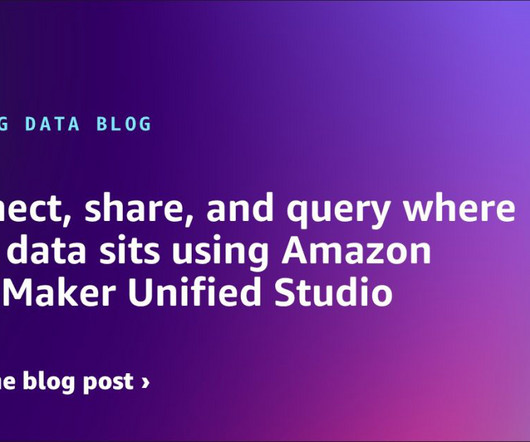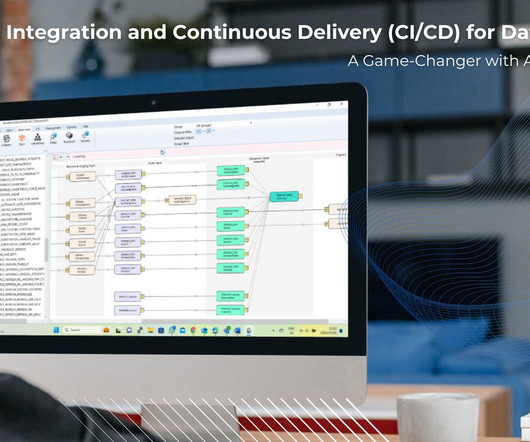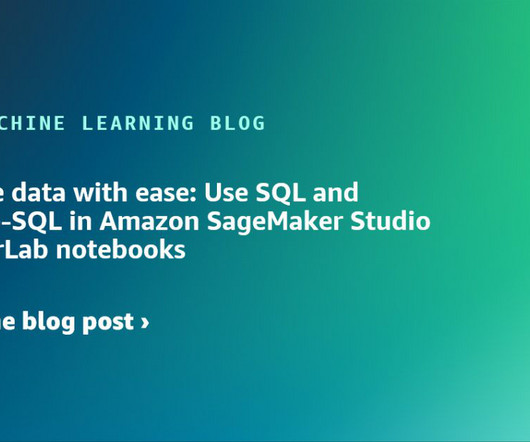Connect, share, and query where your data sits using Amazon SageMaker Unified Studio
MARCH 21, 2025
Traditionally, answering this question would involve multiple data exports, complex extract, transform, and load (ETL) processes, and careful data synchronization across systems. Users can write data to managed RMS tables using Iceberg APIs, Amazon Redshift, or Zero-ETL ingestion from supported data sources.











Let's personalize your content